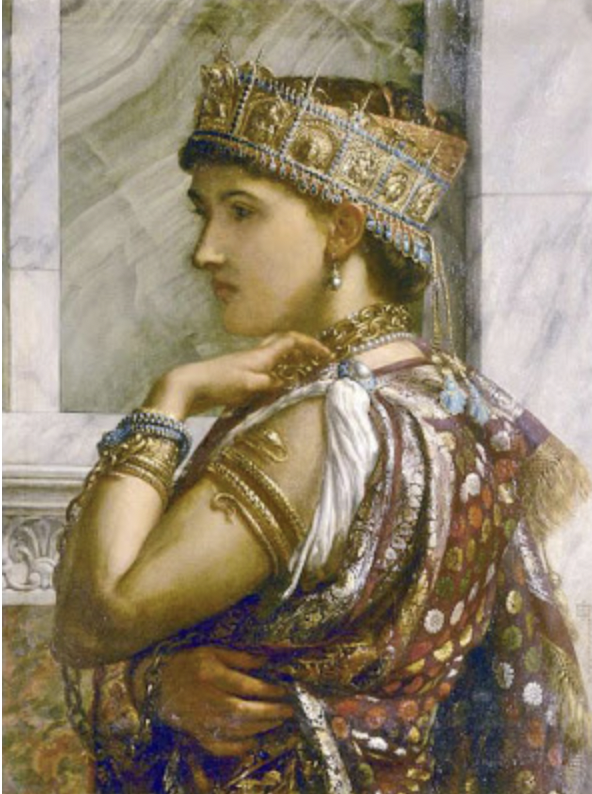The Forgotten Queens of the Arab World

By: Rania Basria / Arab America Contributing Writer
Throughout history, the Arab world has witnessed the rise of powerful queens whose legacies often remain overshadowed by their male counterparts. Arab America, content contributing writer Rania Basria talks about how these women ruled with strength, vision, and wisdom, shaping the course of their nations. One such queen, Zenobia of Palmyra, stands as a testament to the indomitable spirit of Arab women who dared to challenge the status quo.
Zenobia, born in 240 CE, was the queen of the Palmyrene Empire in modern-day Syria. Following the death of her husband, King Odaenathus, Zenobia ascended the throne as regent for her young son, Vaballathus. However, her reign swiftly became one of ambition and defiance.
Zenobia expanded her kingdom by conquering Egypt, Anatolia, and portions of the Levant. Her military exploits threatened the Roman Empire’s dominance, establishing her as one of Rome’s most formidable enemies. She was known for her intelligence, spoke numerous languages, including Greek, Aramaic, and Egyptian, and helped to revitalize Palmyra’s culture by merging Greco-Roman and Arab elements.
Despite being defeated and captured by Emperor Aurelian in 272 CE, Zenobia’s memory lives on. She is still a symbol of resilience and leadership, inspiring countless generations of women in the Arab world and elsewhere.
Queen Mavia (Ma’awia)
In the fourth century, Queen Mavia controlled a confederation of Arab tribes in southern Syria and northern Arabia. She is admired for her military prowess in leading her warriors against the Roman Empire. After obtaining a favorable treaty, she displayed her leadership by encouraging religious tolerance and fostering the Christian faith throughout her country.
Queen Shajarat al-Durr
Shajarat al-Durr, a significant statesman in 13th-century Egypt, helped the Ayyubid monarchy transition to Mamluk authority. After her husband, Sultan al-Salih, died, she became de facto queen of Egypt, successfully defending it against the Seventh Crusade commanded by King Louis IX of France. Her political ability and courage helped the Egyptian state survive a period of turbulence.
Queen Arwa al-Sulayhi
Arwa al-Sulayhi, known as the “Little Queen of Sheba,” ruled Yemen during the 11th century. As a patron of architecture and the arts, she oversaw the construction of large mosques and irrigation systems. Arwa was highly involved in political and religious affairs, establishing a reputation as one of the most learned and capable queens of her era.
The Overlooked Legacy
These queens demonstrate Arab women’s strength and leadership, although their stories are generally overlooked in popular historical histories. Their accomplishments show a long history of female empowerment in the Arab world, challenging modern perceptions of gender roles in the region.
The legacy of these queens goes beyond their military and political accomplishments. They supported culture, religion, and the arts, leaving an enduring influence on their communities. Their reigns serve as reminders that women have long played important roles in shaping history, even if their achievements are not always well recognized.
Why Their Stories Matter Today
In an era when representation and gender equality are at the forefront of global discussions, reviewing the stories of these lost queens provides vital insights. They emphasize the need of conserving varied historical narratives as well as the potential for gender-neutral leadership. By shedding light on their legacies, we not only honor their efforts but also encourage future generations to recognize the value of inclusive history.
Zenobia, Mavia, Shajarat al-Durr, and Arwa al-Sulayhi are not only historical individuals; they also represent resilience, intelligence, and courage. Their experiences should be communicated, appreciated, and remembered as important components of the Arab world’s rich and diverse legacy.
Check out our blog here!








